Other countries
| Country | Name | Owner | Notes |
|---|---|---|---|
| Radio Television of Vojvodina | Government of Serbia | airs 7 hours a week in the Romanian language |
This is a list of television channels that broadcast for a Romanian language audience. Typically, non-Romanian content is subtitled, but maintains the original language soundtrack. Non-Romanian programming intended for children, is however, usually dubbed into Romanian. Regardless of intended audience, many shows receive a Romanian title, which is used in programme schedules.
| Country | Name | Owner | Notes |
|---|---|---|---|
| Radio Television of Vojvodina | Government of Serbia | airs 7 hours a week in the Romanian language |

Dubbing is a post-production process used in filmmaking and video production, often in concert with sound design, in which additional or supplementary recordings are lip-synced and "mixed" with original production sound to create the finished soundtrack.

The Romance languages, less commonly referred to as Latin languages or Neo-Latin languages, are the various modern languages that evolved from Vulgar Latin between the 3rd and 8th centuries. They are the only extant subgroup of the Italic languages in the Indo-European language family. The six most widely spoken Romance languages by number of native speakers are Spanish, Portuguese, French, Italian, Romanian, and Catalan. Among all the Romance languages, including national and regional languages, Sardinian and Italian are the least differentiated from Latin. The most divergent from Latin is French, which was heavily influenced by Germanic languages; however, all Romance languages are closer to each other than to classical Latin.

Romanian is an Eastern Romance language spoken by approximately 22–26 million people as a native language, primarily in Romania and Moldova, and by another 4 million people as a second language. According to another estimate, there are about 34 million people worldwide who can speak Romanian, of whom 30 million speak it as a native language. It is an official and national language of both Romania and Moldova and is one of the official languages of the European Union.
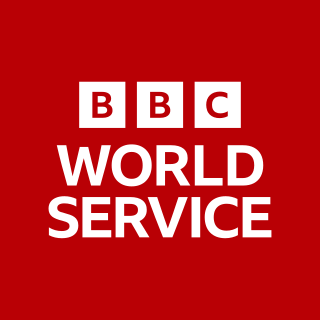
The BBC World Service is an international broadcaster owned and operated by the BBC, with funding from the British Government through the Foreign Secretary's office. It is the world's largest external broadcaster in terms of reception area, language selection and audience reach. It broadcasts radio news, speech and discussions in more than 40 languages to many parts of the world on analogue and digital shortwave platforms, internet streaming, podcasting, satellite, DAB, FM and MW relays. In 2015, the World Service reached an average of 210 million people a week. In November 2016, the BBC announced that it would start broadcasting in additional languages including Amharic and Igbo, in its biggest expansion since the 1940s.
Romanian may refer to:

Radio Free Europe/Radio Liberty (RFE/RL) is a United States government funded organization that broadcasts and reports news, information, and analysis to countries in Eastern Europe, Central Asia, Caucasus, and the Middle East where it says that "the free flow of information is either banned by government authorities or not fully developed". RFE/RL is a private, non-profit 501(c)(3) corporation supervised by the U.S. Agency for Global Media, an independent government agency overseeing all U.S. federal government international broadcasting services. Daisy Sindelar is the vice president and editor-in-chief of RFE.
Ro or RO may refer to:
Linguistic prescription, or prescriptive grammar, is the establishment of rules defining preferred usage of language. These rules may address such linguistic aspects as spelling, pronunciation, vocabulary, syntax, and semantics. Sometimes informed by linguistic purism, such normative practices often suggest that some usages are incorrect, inconsistent, illogical, lack communicative effect, or are of low aesthetic value, even in cases where such usage is more common than the prescribed usage. They may also include judgments on socially proper and politically correct language use.
ISO/IEC 8859-2:1999, Information technology — 8-bit single-byte coded graphic character sets — Part 2: Latin alphabet No. 2, is part of the ISO/IEC 8859 series of ASCII-based standard character encodings, first edition published in 1987. It is informally referred to as "Latin-2". It is generally intended for Central or "Eastern European" languages that are written in the Latin script. Note that ISO/IEC 8859-2 is very different from code page 852 which is also referred to as "Latin-2" in Czech and Slovak regions. Code page 912 is an extension.
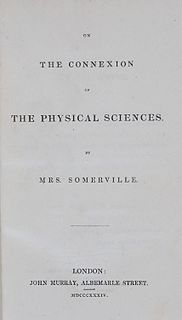
Popular science is an interpretation of science intended for a general audience. While science journalism focuses on recent scientific developments, popular science is more broad-ranging. It may be written by professional science journalists or by scientists themselves. It is presented in many forms, including books, film and television documentaries, magazine articles, and web pages.

The Romanians are a Romance-speaking ethnic group. Sharing a common Romanian culture and ancestry, and speaking the Romanian language, they live primarily in Romania and Moldova. The 2011 Romanian census found that just under 89% of Romania's citizens identified themselves as ethnic Romanians.
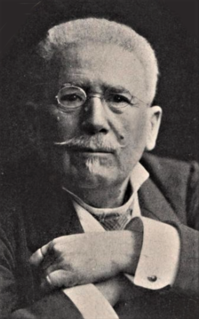
Abraham Goldfaden, also known as Avram Goldfaden, was a Russian-born Jewish poet, playwright, stage director and actor in the languages Yiddish and Hebrew, author of some 40 plays. Goldfaden is considered the father of modern Jewish theatre.
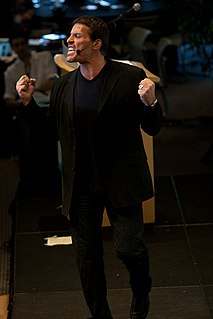
A motivational speaker is a speaker who makes speeches intended to motivate or inspire an audience. Such speakers may attempt to challenge or transform their audiences. The speech itself is popularly known as a pep talk.

Magyarization, after "Magyar"—the Hungarian autonym—was an assimilation or acculturation process by which non-Hungarian nationals living in Austro-Hungarian Transleithania adopted the Hungarian national identity and language in the period between the Compromise of 1867 and Austria-Hungary's dissolution in 1918. Magyarization occurred both voluntarily and as a result of social pressure, and was mandated in certain respects by specific government policies.
Latinisation or Latinization can refer to:

Subtitles and captions are lines of dialogue or other text displayed at the bottom of the screen in films, television programs, video games or other visual media. They can be transcriptions of the screenplay, translations of it, or information to help viewers who are deaf or hard-of-hearing understand what is shown.

Pro Arena is a Romanian TV channel that airs programming intended for a male audience, including sports transmissions. Its headquarters are located in Bucharest and it is owned by Pro TV SRL.
PNG or Png most often refers to:
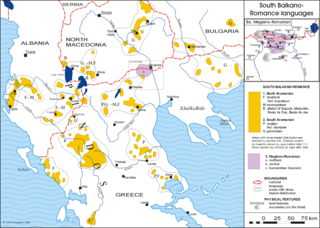
The Aromanian language, also known as Macedo-Romanian or Vlach, is an Eastern Romance language, similar to Megleno-Romanian, Istro-Romanian and Romanian, spoken in Southeastern Europe. Its speakers are called Aromanians or Vlachs. Some scholars, mostly Romanian ones, consider Aromanian a dialect of Romanian.

A play is a work of drama, usually consisting mostly of dialogue between characters and intended for theatrical performance rather than just reading. The writer of a play is called a playwright.